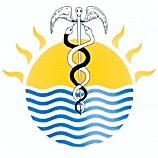I saw my consultant neuro-surgeon last month in Edinburgh. It was a 14 hour round trip with and overnight stay for a 10 minute chat! Apart from him showing me the latest MRI findings of my cervical spine post decompression and fusion and suggesting that no further surgery was required, the amusing topic of the day was that he was a doctor who called himself 'Mr' and I was a 'Mr' who called himself Doctor (I don't do that very often as it is extremely confusing for all concerned to have a doctorate in medicine and yet not be a medical doctor). The surgery seemed to have gone OK and there was no reason why it should not have been successful - but there never had been any guarantees that there would be any pain reduction following surgery.
It set me thinking that I must have encountered hundreds and hundreds of patients over the years who had not benefited from surgery - even when they had embraced it with eyes wide open (as I had) as a last resort once all conservative treatment had failed to produce results. I am NOT anti surgery as I feel that it is an essential part of medicine that has altered improved the lives of countless people with organic, musculo-skeletal and neurological conditions. However, nothing can be guaranteed and it should always (except in emergency cases) be carried out as a last resort when conservative treatment has failed. It can never usually be reversed if its not been successful - there's no going back - it is a one way route! There's the rub. How many patients really and truly appreciate that. Most of still think that 'doctor is always right' and that the surgeon 'must' be right. If conservative therapy didn't do the trick pre surgery - it sure won't post surgery. When I was practising, the hardest thing that was asked of me was to treat something that had been surgically treated beforehand. One of the hardest things to cope with is the effect of scar tissue formation (next blog), but when treating chronic lumbar pain (for example) I knew the lumbar anatomy backwards - but after surgery it was such a difficult job as the anatomy had changed.
It remains a huge bone of contention with me that, sadly, these days surgery (especially with musculo-skeletal conditions) is often carried as a first resort before therapy (of any kind) has had the opportunity to exhaust all the channels. Wearing my 'really big head' hat, I know that I've saved scores of patients from having the knife. Patients with acute spinal or knee cartilage conditions were all 'cured' (the word is ALWAYS used advisedly) before the dreaded knife. On a few occasions that physical therapy took several sessions, I wasn't always successful in achieving the surgical stay of execution - but you can't win em all. Next blog - the effects of scar tissue.
Saturday, 8 September 2012
Subscribe to:
Post Comments (Atom)

It is very difficult to find remedy to Lumbar Pain . Their are many different types of 'proposed' remedies, and sometimes it can be very difficult choosing the right one. The cross patch gives a lot of insight on the surgical side of finding a remedy to help alleviate lumbar pain. Thank you for the post!
ReplyDelete